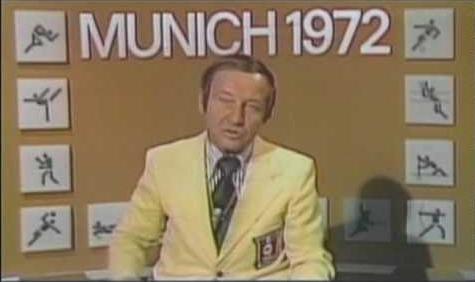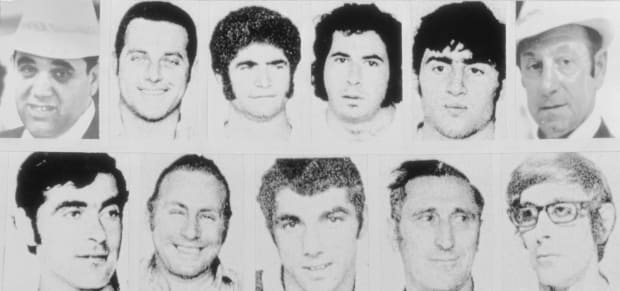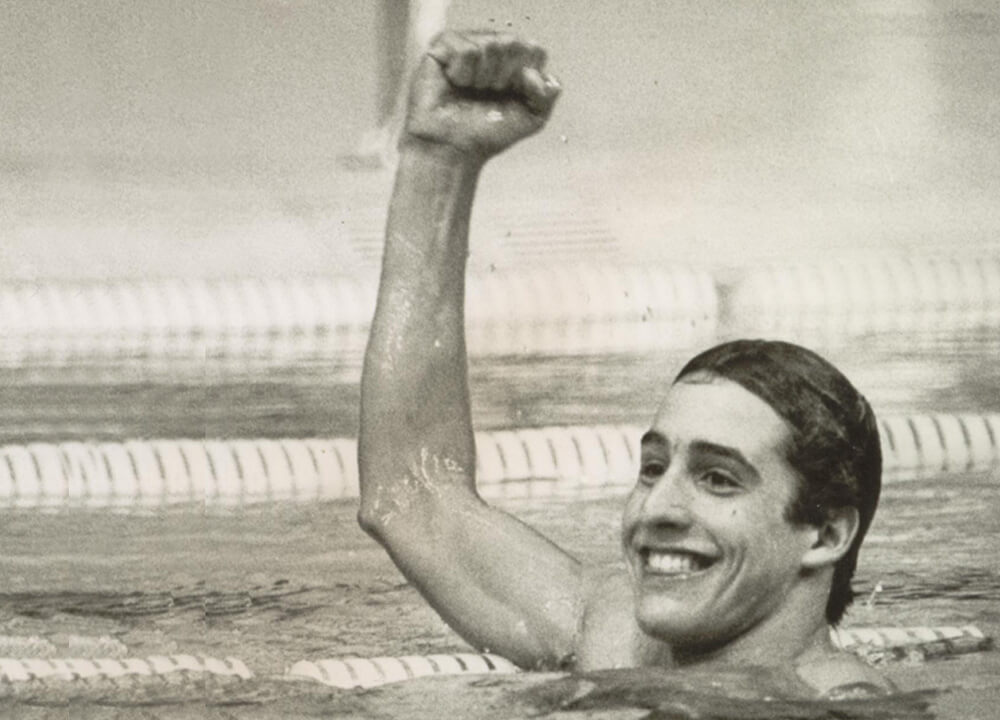By: Zachary Draves
The 1972 Munich Olympics were dubbed as the “Serene Olympics” destined to be filled with love, peace, and tranquility. It had been thirty six years since the Berlin Games of 1936 in which Adolf Hitler attempted to use that platform as an opportunity to legitimize the hateful ideology of the Nazi regime. The organizers of the Munich Games worked tirelessly to ensure that those dark moments wouldn’t repeat itself and they created an open and lax environment for the athletes and spectators in contrast to the police state of yesteryear.

(Courtesy: AFP via Getty Images)
It had been a celebratory games through the first ten days until around 4:00 AM on the morning of September 5th, when terror was unleashed and the world was transfixed in horror. A terrorist group ironically called Black September, which was affiliated with the Palestinian Liberation Organization, climbed the fence of the Olympic Village armed with high capacity rifles and grenades tucked away in duffle bags and broke into the building that housed the Isreali team. They immediately killed two, Wrestling coach Moshe Weinberg and Weightlifter Yossef Romano, and took nine others hostage. They were demanding the release of 236 Palestinian prisoners that were held capative in Israel or they would kill the hostages.

(Courtesy: Kurt Strumpf/AP)
The world looked on in disbelief that the Olympic spirit was interrupted by such travesty. Television viewers were following the updates provided by legendary ABC Sports broadcaster Jim McKay, who along with famed executive Roone Arledge, helped to revolutionize coverage of the Olympics. Originally, McKay had been scheduled to cover track and field that day but as soon as news of the attack got word, he was summoned in by ABC to do an entirely different kind of play by play. He had asked Arledge why he was picked to anchor the coverage and he was told that because of his decorated work on programs like Wide World of Sports, that he possessed the kind of journalistic qualities that were needed. Hour by hour and minute by minute, McKay calmly walked the audience through that treacherous period of uncertainty.

(Courtesy: Israel Forever)
The West German authorities were in a state of chaos as to how to respond given that they had no experience in hostage situations. They also couldn’t bring in the army to intervene given the conditions of the post-World War II constitution they had ratified which stated that military usage in domestic peacetime was limited. During the negotiations, they had no ability to give Black September their ultimate demand of releasing prisoners, a request that was emphatically denied by then Isreali Prime Minister Golda Meir.
Ultimately, the West Germans hatched a plan in which a plane would be waiting for Black September at the Fürstenfeldbruck air base that was en route to Cairo. They would be able to bring the hostages with them and as they would get on the plane, the authorities would have disguised themselves as the flight crew and overpower the terrorists. At night time, the terrorists and the hostages flew by helicopoter to the air base. But by the time they arrived, the plan completely fell apart.

(Courtesy: Associated Press)
Some police officers backed out of the plan and the alternative of having snipers shoot at the terrorists as they got off the helicopter was botched given that they didn’t have expert snipers. As a result, a shootout ensued in which all nine hostages were slaughtered by the terrorists. A police officer, Anton Fliegerbauer, was also killed as were five of the eight terrorists. The remaining three were eventually caught.
As soon as it was confirmed that the hostages were murdered, McKay, still on the air for the entire day, made it offical by saying three words that one could argue is the most famous line in sportscasting “They’re all gone.”
Among the casualties was that of American born weightlifter David Berger. He was born in Cleveland, Ohio and would go on to attend Tulane University and Columbia University Law School. After winning a gold medal in the 1969 Maccabiah Games that were held in Israel, he emigrated there and set his sights on opening a law office in Tel Aiv. While competing in Munich, he was eliminated in one of the early rounds. It had been a lifelong dream for him to compete in an Olympics and his dream came true.
After the tragedy, Olympic officials suspended competition for 34 hours. After a brief memorial service to the Isreali athletes at the Olympic Stadium, then IOC president Avery Brundage, who had quite a checkered past as it related to racist and anti-semetic practices, said that “the games must go on.” The games were never the same after that as the dark cloud of horror hung over Munich for the remaining period.

(Courtesy: Getty Images)
Ever since, the Olympics has amplified security and counter terrorism measures which were latered intensified after the 9/11 attacks.
The memory of those eleven Israeli athletes and coaches were immortalized in various spaces. Numerous films and documentaries have been made including the 1999 Academy Award winning documentary One Day in September directed by Kevin Macdonald and the 2005 film Munich directed by Steven Speiberg. There is a memorial place at 31 Connollystraße, the building of the Olympic Village where the attack took place. There is another memorial entitled Erinnerungsort Olympia-Attentat, located in the Olympic park in Munich.
As we acknowledge this solemn anniversary, we must do what we do whenever there is a period of intense reflection as it relates to such a tragic event. We must remind ourselves that the true essence of the Olympic spirit is one in which those ideals of equality, sportsmanship, and solidarity are put into practice. When anti-semitism has been on the rise in the United States and across the globe the last several years, sports and other influential societal insitutions must lead the way in calling out such atrocities. Finally, we utter the credence that is summed up in four simple words.
Never Forget. Never Again.
Rest in Peace Moshe Weinberg, Yossef Romano, Ze’ev Friedman, David Berger, Yakov Springer, Eliezer Halfin, Yossef Gutfreund, Kehat Shorr, Mark Slavin, Andre Spitzer, Amitzur Shapira, Anton Fliegerbauer.


 NFL
NFL


